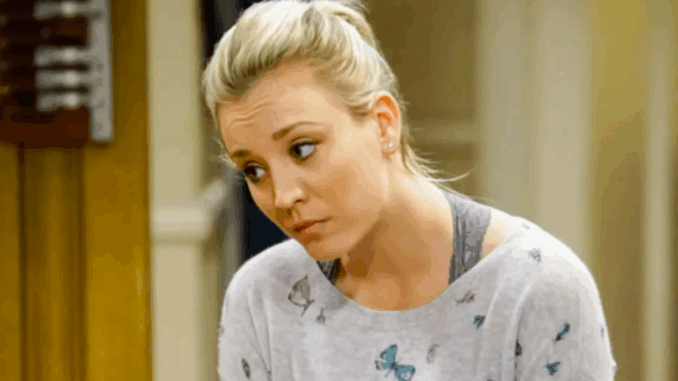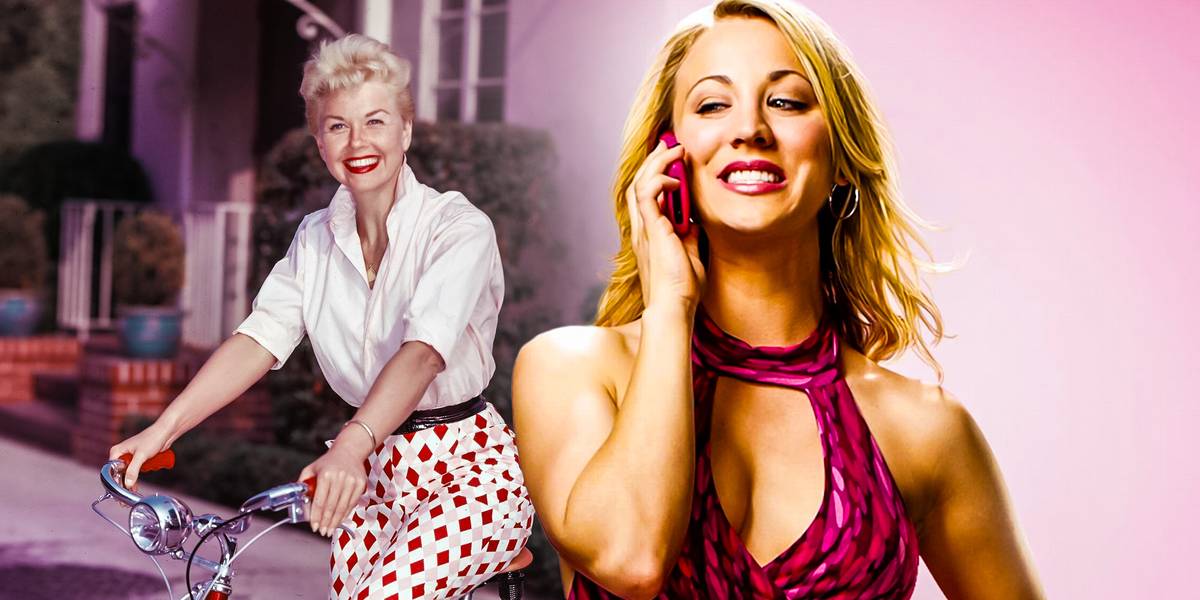
When The Big Bang Theory premiered in 2007, it brought together a trio of socially awkward scientists, their peculiar roommate, and a sunny, confident waitress named Penny. At first glance, Penny — played by Kaley Cuoco — seemed like the stereotypical “hot neighbor” trope, the comedic foil to a group of neurotic geniuses. But what unfolded over twelve seasons was something far more nuanced. Through subtle performances and character growth, Penny transformed into one of the show’s most emotionally grounded, culturally impactful characters — and in doing so, Kaley Cuoco helped redefine what it meant to be a sitcom leading lady.
A Character Built for Contrast
Penny’s arrival into the lives of Leonard, Sheldon, Raj, and Howard was deliberate: she wasn’t meant to fit in. Her confidence, street smarts, and pop culture fluency stood in stark contrast to their world of comic books, Star Trek, and theoretical physics. Early scripts painted her as the voice of the audience — the “normal” person confused by the guys’ jargon and behaviors.
But Cuoco never played Penny with ridicule. Instead, she infused her with curiosity and charm. Even when Penny was clueless about quantum mechanics, she was never condescending or cruel. She was empathetic, often protective, and surprisingly patient with her nerdy neighbors. As early as Season 2, audiences began to see that Penny wasn’t there just to laugh at the nerds — she was beginning to care about them.
From Plot Device to Full Narrative Arc
In many sitcoms of the early 2000s, a character like Penny might have remained static — the pretty girl next door who makes the same jokes and provides the same reactions week after week. But The Big Bang Theory took a different approach. Writers, responding to Cuoco’s likability and timing, gradually gave Penny more emotional weight and complexity.
Her romance with Leonard wasn’t just a will-they/won’t-they trope; it was a slow evolution. Penny’s insecurities about her intelligence, her fear of failure, and her struggle with self-worth added dimension to a character initially written as comic relief. She wasn’t just a waitress hoping to be an actress — she was a woman wrestling with identity in her late 20s and early 30s, which made her deeply relatable.
Even her job changes, from waitress to pharmaceutical rep, reflected real-life journeys of self-discovery. Unlike Sheldon, whose brilliance was unwavering, or Howard, who found a wife and quickly settled into fatherhood, Penny was constantly in motion — growing, backsliding, changing course.
Kaley Cuoco’s Underrated Performance

Though Cuoco was one of the most visible stars of the series, she rarely received the critical acclaim her co-stars did. Jim Parsons won four Emmys for his role as Sheldon; Cuoco never received a nomination. Yet her role was arguably more difficult: Penny had to be the emotional interpreter, the audience anchor, and the romantic partner — all while holding her own among big personalities.
Cuoco’s comedic timing was essential, but it was her vulnerability that made Penny unforgettable. In episodes like “The Love Spell Potential” or “The Romance Recalibration,” Cuoco delivered performances that quietly revealed Penny’s fears and longings without melodrama. When Penny told Leonard she didn’t feel smart enough for him, Cuoco delivered the line with trembling honesty — making millions of viewers feel seen.
The Gender Shift in Geek Culture
Penny’s presence also challenged the male-dominated world of geek media. In earlier seasons, she was often the only woman in the room. But as Amy Farrah Fowler and Bernadette joined the cast, the show evolved — and so did Penny’s role. She became not just a romantic interest, but a key player in a friend group that now had strong, intelligent women at its core.
And Penny’s influence was undeniable. She introduced the guys to new perspectives, helped Sheldon become slightly more human, and showed viewers that emotional intelligence matters just as much as IQ.
By the final seasons, Penny was no longer the outsider. She was part of the family. And her decision in the final episode — to embrace her unexpected pregnancy after years of being unsure about motherhood — felt like the culmination of a long, often understated, emotional arc.
A Legacy Beyond the Laughter
Kaley Cuoco’s post-Big Bang career, including her acclaimed turn in The Flight Attendant, has confirmed what many fans always knew: she’s a serious talent. But her legacy as Penny remains potent. For millions, Penny wasn’t just a sidekick — she was the emotional heart of a show about science, love, and the awkward journey to adulthood.
She made it okay to not have a plan. To fail, to start again, to fall in love with someone completely different from yourself. And in a sitcom world full of easy jokes and shallow archetypes, Penny stood out — as real, as funny, and, ultimately, as someone worth rooting for.